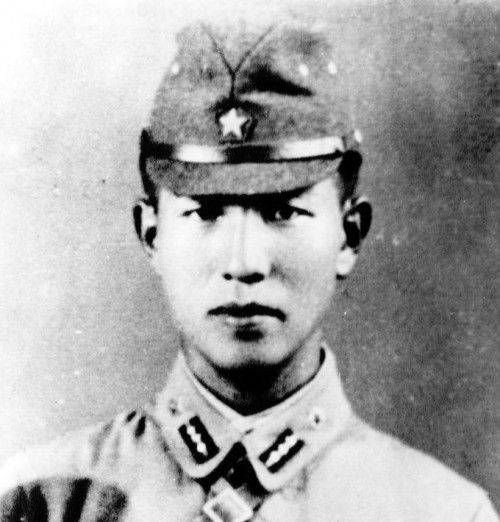Hiroo Onoda: The Last Japanese Soldier to Surrender
- Angel Yanica Bingil

- Mar 22, 2021
- 3 min read
Have you heard of the Japanese soldier who fought in World War II and hid in the Philippine jungle for 30 years? If not, then let me share with you his implausible story.

Born on March 19, 1922, Hiroo Onoda joined the Japanese Imperial Army Infantry when he was only 18 years old. He then became an intelligence officer and was sent to Lubang Island in the Philippines on December 26, 1944.

In the same year, the Japanese Soldiers were already losing against the joined forces of the Philippines and America. Most Japanese soldiers have already escaped while the others hid in most islands. As an intelligence officer, Onoda was trained with many strategies, one of them is to hide in the jungle in order to make surprise attacks. However, a year after he came to the country, Japanese soldiers have already been outnumbered and eventually lost in the war.

Meanwhile, Onoda gave his loyalty under a stern order, which is to never surrender and commit suicide if ever captured. Most Japanese soldiers have daggers with them that were purposely used to kill themselves to retain their honor, which was traditionally called "seppuku".

Onoda was then left with his 3 other comrades namely Private Yuichi Akatsu, Corporal Shōichi Shimada, and Private First Class Kinshichi Kozuka. Unaware of the situation, Onoda continued his mission and carried out a guerilla raid against the Flipino soldiers. Onoda noticed the absence of battle sounds but just concluded that the battleground might have changed locations. They continue their raid and ambushed some Filipino farmers. They joined police shootouts and steal rice, fishes, and fruits from the locals.
The news escalates and not long enough, the American Military forces acknowledged the situation in Lubang. America sent leaflets apprising the remaining Japanese soldiers to surrender as the war has long been over. However, Onoda did not trust the leaflets and thought it was some kind of propaganda.

For 4 more years, Onoda and his men continued to fight against Filipinos. But in 1949, Private Akatsu realized the war was already over, so he decided to leave Onoda's unit. Akatsu lived alone in the jungle for 6 months and surrendered to the Philippine Army in March 1950. He also shared to US and Filipino authorities that his comrades (Onoda's unit) were still continuously fighting in the jungle. The US then once again sent leaflets to Lubang Island but this time, they included pictures and letters from their families as proof that the war was over. But Onoda once again thought it was all scams and propaganda.

Years later, Onoda's comrades were killed during their raid leaving him all alone in the jungle. But his remarkable loyalty to his mission kept him going, and not even once he thought of surrendering. However, in the year 1974, a Japanese man named Norio Suzuki traveled to Lubang Island to find Onoda.

Suzuki found him and told him in their conversation that the war has long ended decades ago. But Onoda refused to surrender unless his superior officer orders him to do so. Onoda's commanding officer, Major Yoshimi Taniguchi, went to Lubang Island himself fulfilling his promise to Onoda back in 1944 that "Whatever happens, we'll come back for you". Onoda was already 52 years old when he surrendered on March 9, 1972.




Onoda did not like how the war had turned out, he was really disappointed with the loss of his country. He moved to Brazil in the year 1975 and died at the age of 92 on January 16, 2014.



Comments